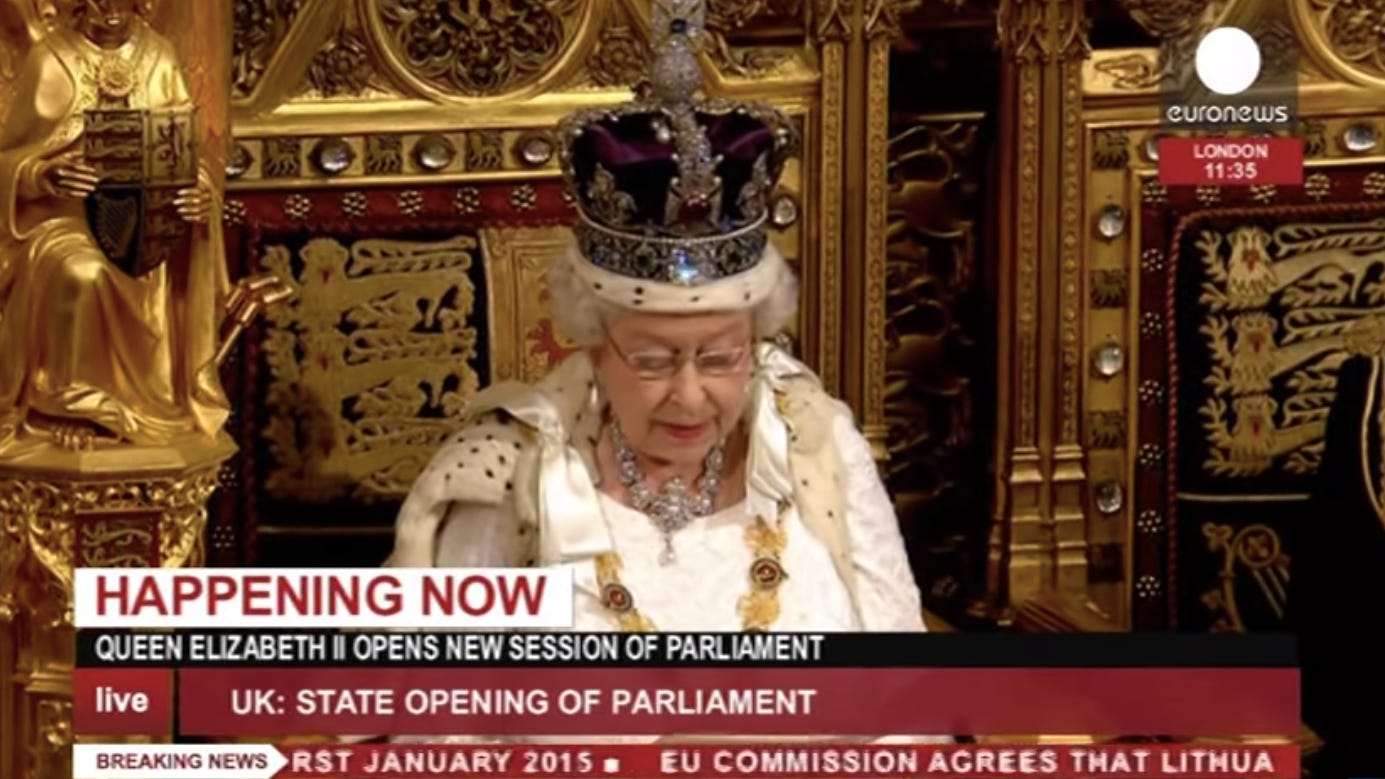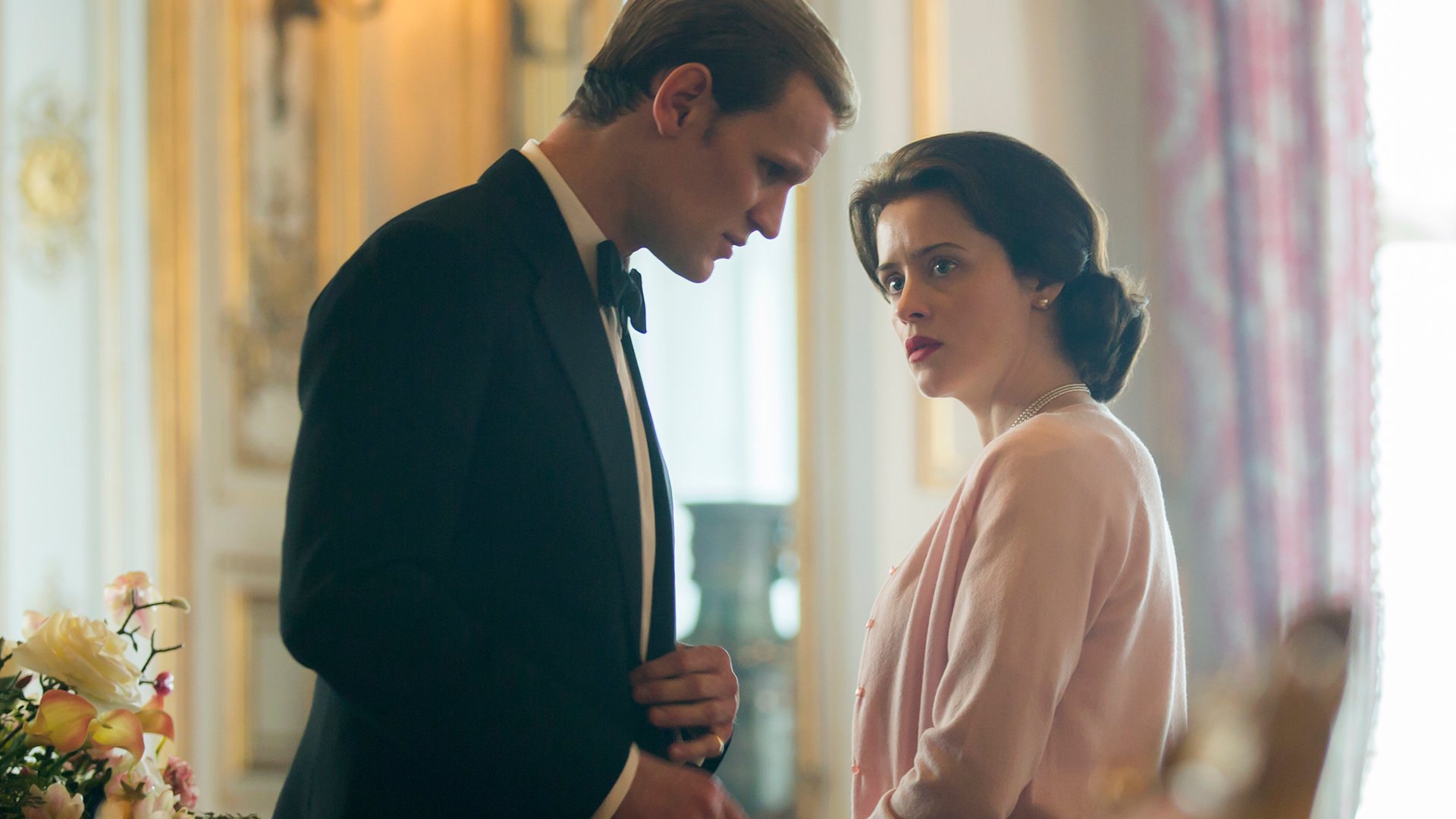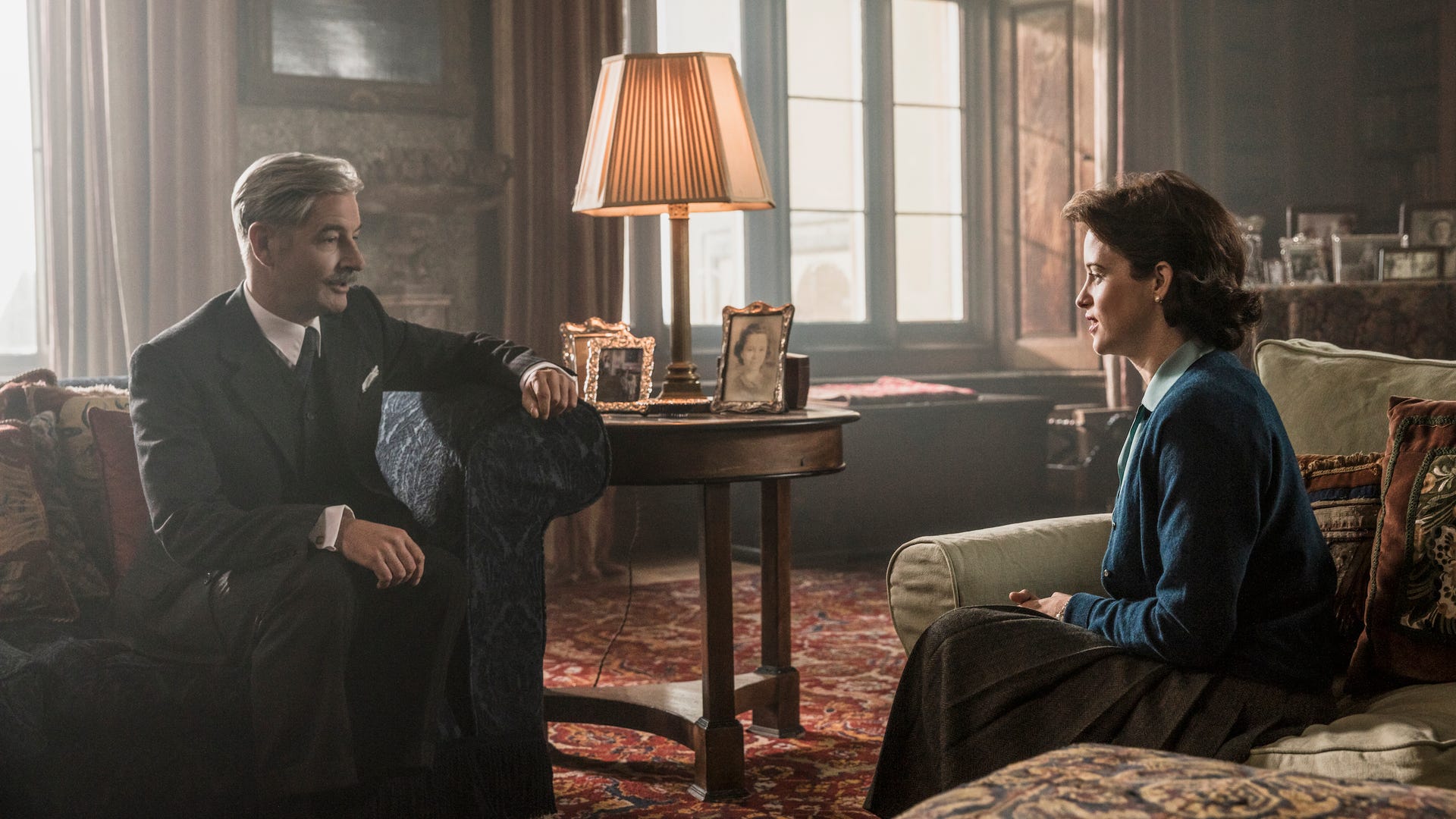Join or Sign In
Sign in to customize your TV listings
By joining TV Guide, you agree to our Terms of Use and acknowledge the data practices in our Privacy Policy.
The Crown Season 2 Lightens the Weight of Colonialism With Karmic Comeuppance
As a child of not one, but two former colonies, The Crown is the most satisfying petty watch of all time.
One of the worst tourist sites to visit in Britain for a diasporic child of not one, but two former British colonies, is undoubtedly the Jewel House in the Tower of London. Housing over 23,578 gemstones, to most visitors the main exhibition feels like an old Disneyland ride: an ever-looping moving walkway slowly revolves people around one of the most stunning displays of wealth and beauty they've ever seen. But the feeling that bubbled up in me as my family was taken in an inexorable circuit around the Koh-i-Noor Diamond -- at one time the largest diamond in the world -- wasn't awe. It was ire. There, in front of an Indian-born family who successfully immigrated to America, was what had been the prize jewel of our motherland for centuries until it was forcibly taken by the British Empire. (It eventually ended up as the centerpiece on the crown of the late Queen Mother of Elizabeth II, and has been worn by the current Queen herself.) In that moment I turned to my parents, incredulous that we had given the British monarchy our money in order to look at something they stole and refused to give back. What a perfect scam.
My pettiness only grew as I read over the information presented next to the Koh-i-noor. According to the official placard, the Crown was gifted the diamond through a fairly mundane sounding treaty -- with no mention of the fact that they forcibly ripped it out of the hands of a boy king in exchange for his mother's life. The impeccable sugar-coating of this history was an unsurprising and bitter pill to swallow in a place of official record.

Queen Elizabeth addressing Parliment in 2015 while wearing a crown featuring the Koh-i-noor Diamond.
Rarely does that glossy veneer crack in the history books, particularly so in romantic retellings of period dramas. In revealing this hypocrisy, and reveling in the monarchy's slow and painful diminishment, the second season of The Crownpainted an emotionally accurate portrait of the royal family. And in doing so, Peter Morgan, showrunner and creator of The Crown, has -- unwittingly -- made a show for people of color, particularly those who are part of the massive diaspora of ex-colonies thanks to the British empire.
Unwittingly is perhaps the key here. Season 1 was about a new, fallible Queen (Claire Foy) pushing at the boundaries of her influence and political power. Elizabeth's attempts to make a difference in the lives of the nation as well her loved ones, despite the intense claustrophobia of her position, framed her as a character to be respected, if not admired. But in Season 2, Morgan -- or more likely the time period the show covered -- stripped away most discussion about the political impact of a family that's essentially defanged and barred from participating in a democracy. Instead, Season 2 is centered on why the public-at-large (especially those outside of Britain) still engage with the royals at all: celebrity and star power.
The brilliance of this framing becomes clear as the show evolves into The Real Housewives of Buckingham. Extremely public and humiliating romantic drama tears through the story in every direction: There's Princess Margaret and her bisexual beau, divorce scandals, and even an unexpected pregnancy. But the real Bachelor live-tweet level storyline is Phillip's (Matt Smith) infidelity. Because of it, Elizabeth resorts to the methods of commonfolk: bullying a former friend into sharing information, stalking the side-piece to side-piece's work, and even attempting to buy her man's heart. (Although she did buy it with the official royal title of Prince, so maybe that one's not so common.) Each righteously petty act reveals an emotion that a British monarch is supposed to be above. Jealousy, anger, desperation, resignation, they all serve to reorient the Queen (and the rest of the royals) as less-sexy Kardashians. AKA incredibly average people (with the exact same s--tty instincts about relationships as you) who have immense wealth and social power, but are eminently mockable for being unable to demonstrate why they deserve such privilege.

Phillip and Elizabeth in a tense moment.
Robert Viglasky/NetflixWhen compared to other period pieces, this is a downright unromantic view of people who were supposedly anointed by god to rule over fellow citizens as if out of a literal fairy tale. Consider Victoria and The King's Speech, which both romanticize the monarchs within. Victoria, unlike Elizabeth, is empowered by the love a good man; and Albert (Elizabeth's father) is empowered by the love of a nation. On the other hand Elizabeth, in The Crown, is portrayed as a woman overwhelmed, unable to turn to family or spouse for support as countries -- including her own -- actively rebel against her. Morgan's careful consideration of the woman, rather than a symbol of an institution, is what allows him to depict her failures without giving into the instinct to justify, and subsequently romanticize them.
Watching the series, I of course found myself empathizing with a woman whose husband can't stand that she's more powerful than him and repeatedly cheats on her. But because of the mighty weight of colonialism, the exposed cracks in her persona read as celebrity worth dragging. I'm allowed feel for Elizabeth, but without being force fed reasons to forgive her and her family for actions that ruined the lives of mine.
Each time Morgan and Co. humanize Elizabeth, they strip away the fake veneer of goodness and moral superiority, but the method is most effective at exposing hypocrisy when the Queen's unseemly (but imminently understandable) actions diminish the importance the Crown to the world at large. Set in an era of decline of the British Empire, rather than the victorious Britain of WWII (and Season 1), the fallout of a royal marriage isn't just personal. It heralds the collapse of a commonwealth that once spanned so wide that the sun never set on it. Perpetually annoyed by her husband -- who insists on giving her political advice with the implication that she can't do her job -- Elizabeth chooses inaction frequently, staying silent in moments where she should speak up. The result is the loss of the Suez Canal, a prime minister resigning in shame over colluding with Israel to illegally invade Egypt, and the worldwide mockery of an empire that doesn't realize it isn't one anymore.

Prime Minister Anthony Eden hands in his resignation after the failed war for the Suez Canal.
Stuart Hendry / NetflixWhile in reality it took more than a spousal tiff over breakfast to topple that international house of cards, watching this string of events unfold in The Crown brought me such a sweet sense comeuppance. You know that woman who you'd probably like if it wasn't for the fact that her family used to own your entire country? Don't worry, the universe is holding that whole system that brought her to power accountable, one papercut at a time. For me, and I imagine many immigrants who would not have been so without the involvement of the British, this is the unshakable hook of Season 2 of The Crown. Dragging wealthy white royals who were born into power -- particularly those who were directly involved in the subjugation and enslavement of people of color across the world -- is pure popcorn schadenfreude for anyone with familial ties to the countries and cultures that were once part of the British Empire.
And frankly, the very least the British can do give me the gift of karmic satisfaction through a piece of historical fiction. After all, that's why my entire family is completely obsessed with The Crown. As we watched Season 2 together, we exulted in the small things. Because as people of the former British colonies, we're never gonna be able to hold the country or the Crown accountable in the big ways we'd really like to. We're not even going to be able to hold them accountable in middling ways: it's a foregone conclusion that they'll never return the Koh-i-noor Diamond to the country it was stolen from. But what we can do is find joy in witnessing the exposing of the monarchy, because each chip at the institution incrementally course corrects its legacy to be viewed through the eyes of the people who it harmed.
It's a catharsis I'll have to take secondhand, but considering The Crown Season 2 was free with my Netflix subscription -- versus a £22 ticket to see a stolen diamond -- I feel like I got the better end of the bargain.
The Crown Season 2 is now streaming on Netflix.
